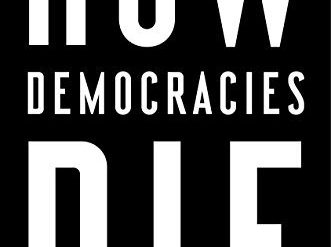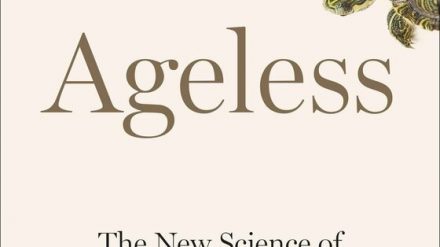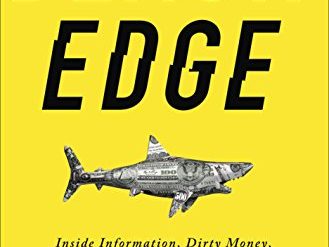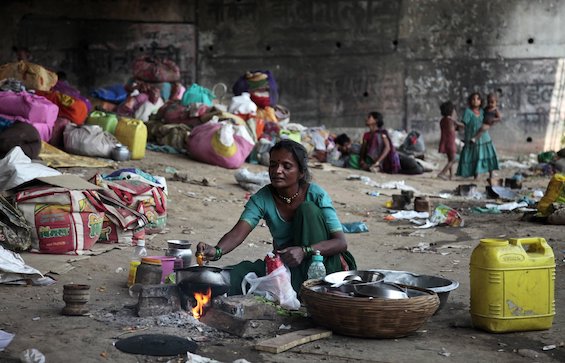
Humanity has wrested enough abundance out of Planet Earth to feed, clothe, and house every man, woman, and child in comfort. Why, then, do tiny numbers of ultra-wealthy people possess so much more than they could ever use or spend in a hundred lifetimes—while most of the rest of the human race struggles to survive? Scholars, pundits, and politicians alike have weighed in on the debate that surrounds this sad spectacle. They offer a wide range of explanations and propose a smorgasbord of policies to address it. To sort through the tangle of conflicting approaches, you might start with the following list. It includes 16 good books about economic inequality that I’ve read and reviewed over the past decade.
This post was updated on September 6, 2023.
Estimated reading time: 22 minutes
The titles in this list are arranged in alphabetical order by the authors’ surnames. Each is followed by my overall rating and a link to my full review.
Does this list include all the good books about economic inequality? Of course not. Does it include the ones that are necessarily the best? Even more emphatically, no. I haven’t even included books I read before I began reviewing books in 2010. Some of those would no doubt have made it to this list. What you see here is merely my effort to record the best of what I’ve come across over the past dozen years.
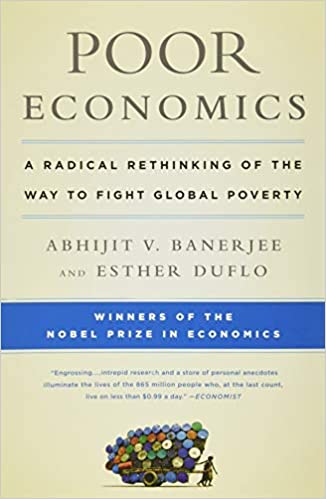
Poor Economics: A Radical Rethinking of the Way to Fight Global Poverty by Abhijit Banerjee and Esther Duflo (2011) 321 pages ★★★★★ – Must reading about the contrasting approaches to ending global poverty
Public debate about the way to combat global poverty has ricocheted between two extremes. One was summed up in 2005 in The End of Poverty by Jeffrey Sachs, the Columbia economist who spearheaded the UN Millennium Development Goals. The other was laid out by former World Bank economist William Easterly the following year in The White Man’s Burden. Sachs advocates massive government-to-government foreign aid. Easterly deplores foreign aid, convinced that it does more harm than good.
In Poor Economics, Abhijit Banerjee and Esther Duflo seek a path between these two extremes, emphasizing the Randomized Controlled Studies they and their colleagues had conducted to ascertain what works and what doesn’t. The two economists, who married in 2015, won the Nobel Prize for Economics in 2019 for helping to develop an innovative experimental approach to alleviating global poverty. Poor Economics is undoubtedly one of the most important books about economic inequality written in recent years. Read more.
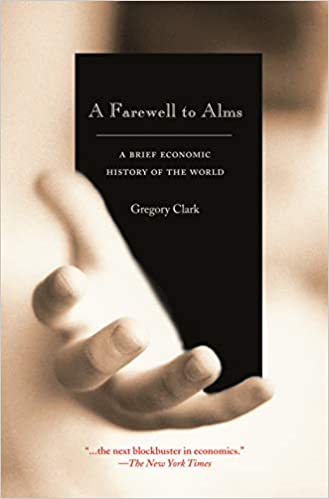
A Farewell to Alms: A Brief Economic History of the World, by Gregory Clark (2008) 431 pages ★★★★☆ – Why is the Global North so much richer than the South?
Ten years after Guns, Germs, and Steel came Gregory Clark’s A Farewell to Alms, yet another effort to answer that same profound question addressed in Diamond’s blockbuster. Why, he asks, are some parts of the world so much richer than others? What explains the yawning gap between the Global North and Global South? Dismissing Diamond, Adam Smith, and Karl Marx alike and finding inspiration instead in Thomas Malthus’ An Essay on Population, Clark locates the answer in his own discipline of economic history. (Why is that not a surprise?)
In a volume riddled with charts, graphs, and “simple” equations only an economist could love, Clark reduces the bigger question to one that’s far more focused: why did the Industrial Revolution occur in Europe, and specifically England, and not somewhere else in the world? Read more.
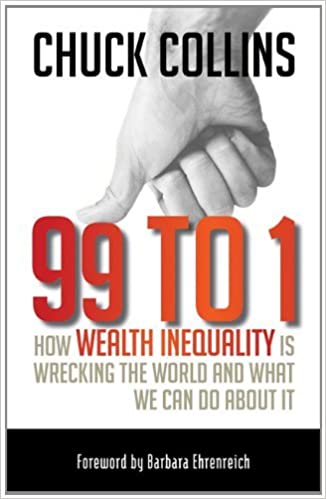
99 to 1: How Wealth Inequality Is Wrecking the World and What We Can Do About It by Chuck Collins (2012) 177 pages ★★★★★ – Wealth inequality: how the 99% can resist
In 99 to 1, Collins lucidly spotlights the terrible price we all pay for the massive imbalance in wealth between today’s haves and have-nots. He surveys U.S. economic history, drawing a parallel between the Gilded Age of the 1890s through the 1920s and the current era, beginning in the late 1970s—both of them periods when the disparity of wealth grew to unprecedented proportions. Collins explains the political dynamics that gave rise to today’s wealth disparity, identifying those responsible as the “rule-riggers” among the 1%, chiefly the leaders of Wall Street-based financial institutions and of the transnational corporations they finance as well as a small number of the individuals who are benefiting the most from the current economic regime.
“In a nutshell,” Collins writes, “(1) the rules of the economy have been changed to benefit asset owners at the expense of wage earners, and (2) these rule changes have benefited global corporations at the expense of local businesses.” Read more.
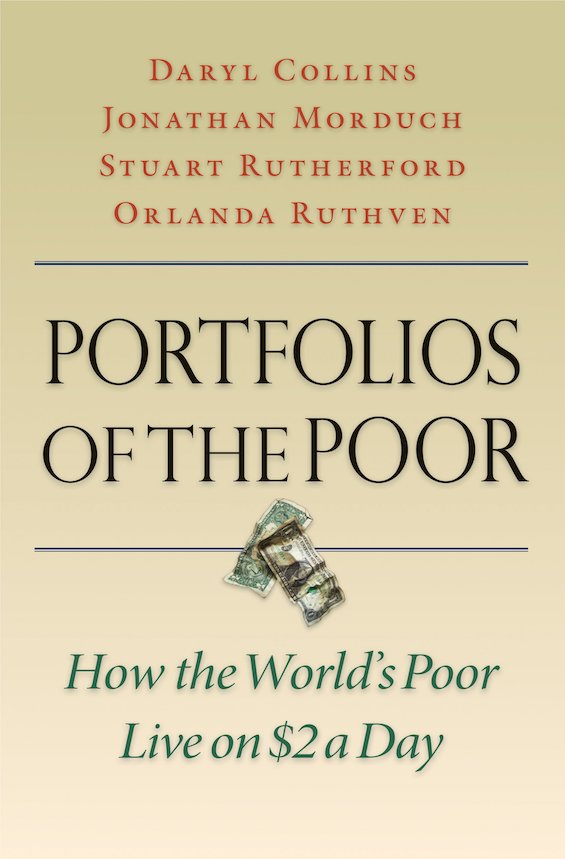
Portfolios of the Poor: How the World’s Poor Live on $2 a Day, by Daryl Collins, Jonathan Morduch, Stuart Rutherford, and Orlanda Ruthven (2009) 315 pages ★★★★☆ – Understanding the day-to-day reality of global poverty
Scholars, activists, and policymakers alike have quarreled over the question of global poverty and what to do about it for more than half a century. More often than not, the disputes they air in official policy debates, in the news media, and in scholarly journals are grounded in statistics developed by the United Nations and the World Bank—figures that usually represent worldwide averages. Therein lies much of the trouble.
In Portfolios of the Poor, the authors wade into the debate with facts rather than speculation. Their book reports the findings of a series of detailed, year-long studies of the day-to-day financial practices of some 250 families in India, Bangladesh, and South Africa, including both city-dwellers and villagers. The authors conducted monthly, face-to-face interviews with each family, focusing on money management and recording every penny spent, earned, or borrowed in “diaries” that formed the principal source for their observations. Read more.
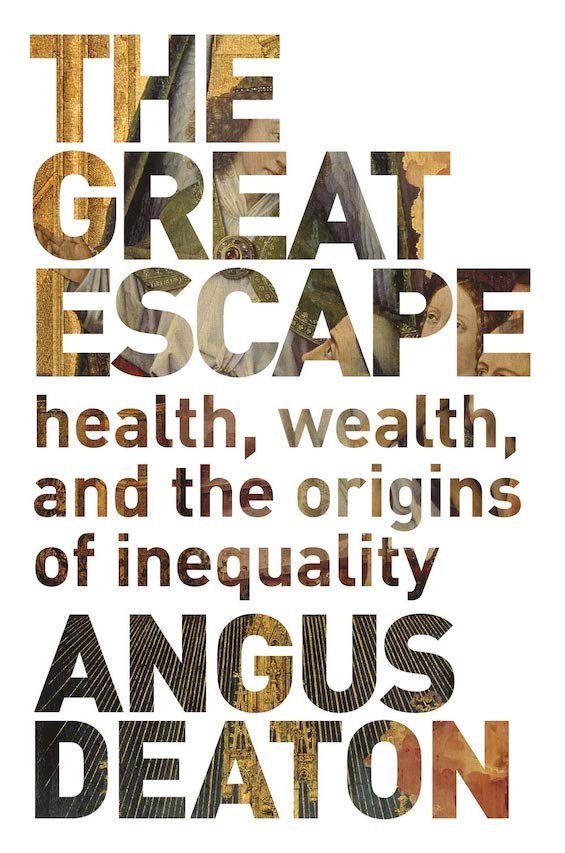
The Great Escape: Health, Wealth, and the Origins of Inequality by Angus Deaton (2013) 362 pages ★★★★☆ – How the inequality gap came to be
Has the human race made progress since the days when all our lives were nasty, brutish, and short? Some might think this question patently silly, since it would appear to answer itself. But Nobel Prize-winner Angus Deaton finds in it a point of entry into his inquiry on “health, wealth, and the origins of inequality,” the subtitle of his ambitious new book. He is in no doubt that humanity has progressed, not steadily but by fits and starts—and continues to do so to this day. “Today,” he writes, “children in sub-Saharan Africa are more likely to survive to age 5 than were English children born in 1918 . . . [and] India today has higher life expectancy than Scotland in 1945.”
In The Great Escape, Deaton, a veteran professor of economics and international affairs at Princeton, explores inequality—between classes and between countries—with a detailed statistical analysis of trends in infant mortality, life expectancy, and income levels over the past 250 years. The Great Escape is widely touted as one of the best books about economic inequality to be published in the past decade. Read more.
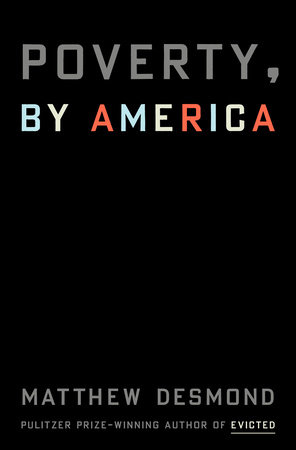
Poverty, by America by Matthew Desmond (2023) 304 pages ★★★★★ – How to end poverty in America
To end poverty in America isn’t a matter of simply throwing money at the problem. An effective program must be holistic, addressing income and wealth inequality, housing and job discrimination, self-defeating immigration policies, and, above all, racism. But government policies alone won’t solve the problem. As Desmond insists, “Tens of millions of Americans do not end up poor by a mistake of history or personal conduct. Poverty persists because some wish and will it to.” And we are all complicit. Read more.
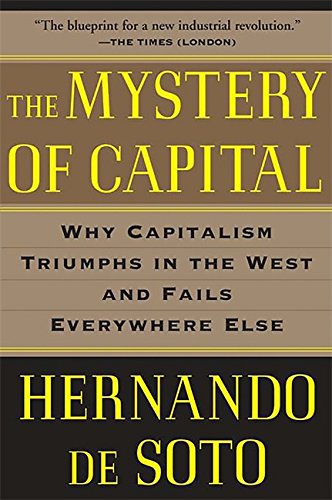
The Mystery of Capital: Why Capitalism Triumphs in the West and Fails Everywhere Else by Hernando de Soto (2000) 288 pages ★★★★☆ – Hernando de Soto on property rights, capitalism and inequality
One of the world’s enduring mysteries is why there is such a wide gap in prosperity between the developed nations and those so often referred to as “developing.” Two centuries ago, China was the world’s wealthiest nation, and many of today’s developed countries were still poor by the day’s standards. Including the USA.
There exists a plethora of explanations for this discrepancy, which has emerged over the last 200 years. Included are neocolonialism and the ascendancy of the multinational corporation in world affairs. Neither is especially convincing.
But one of the most satisfying explanations comes from a noted Peruvian economist named Hernando de Soto who plumbed the connection between capitalism and inequality. He spells it out in detail in The Mystery of Capital, the second of his books describing his life’s work. Read more.
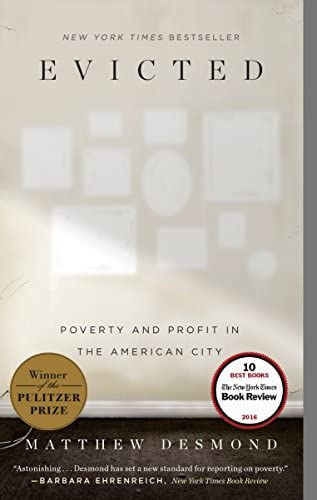
Evicted: Poverty and Profit in the American City by Matthew Desmond (2016) 434 pages ★★★★★ – Does the profit motive cause homelessness?
Between May 2008 and December 2009, a doctoral candidate in sociology named Matthew Desmond at the University of Wisconsin, Madison, lived in the poorest neighborhoods of Milwaukee in an effort to reach an understanding of poverty. He persuaded two landlords with property in the communities to allow him to shadow them and study a number of their tenant families. The result of his work is an extraordinarily powerful book, Evicted: Poverty and Profit in the American City. If this book is used to inform the making of housing policy at every level—federal, state, and local—our society would be much the better for it.
In Evicted, Desmond follows the lives of several Milwaukee families, both black and white, before, during, and after their experience with eviction. Simultaneously, he tracks the work of two landlords, an African-American woman named Sherrena Tarver and her husband with thirty-six badly maintained units in ghetto properties and a Caucasian man named Tobin Charney who owns a rundown mobile home park containing 131 deteriorating trailers. Read more.
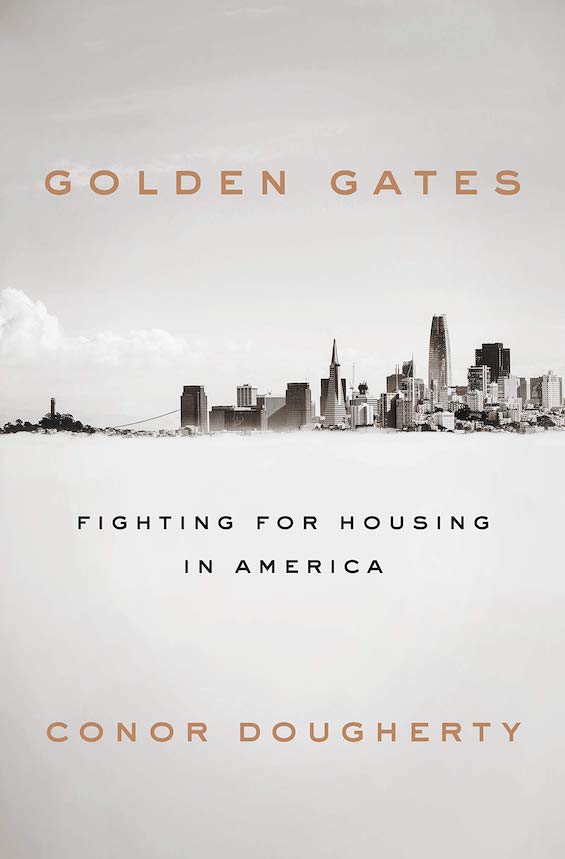
Golden Gates: Fighting for Housing in America by Conor Dougherty (2020) 290 pages ★★★★★ – Why are so many homeless in America?
Walk around almost any big American city long enough and you run the risk of tripping over some homeless person sprawled on the sidewalk. The problem has been half a century in the making, but it’s gotten far, far worse during the past decade. And nowhere is it more severe than in California’s metropolitan cities of Los Angeles and San Francisco. Here—I’m writing from Berkeley, across the Bay from San Francisco—you’re likely to hear any one of a number of explanations for how things have gotten so bad. But if you want to know how to sort through the myths and misconceptions about housing and homelessness in America, a great place to start is Conor Dougherty’s outstanding new book, Golden Gates.
Dougherty’s book is no dry academic treatise. It’s a lively account focusing on individual people (mostly in the San Francisco Bay Area) who are playing key roles in addressing the challenge of homelessness. Read more.
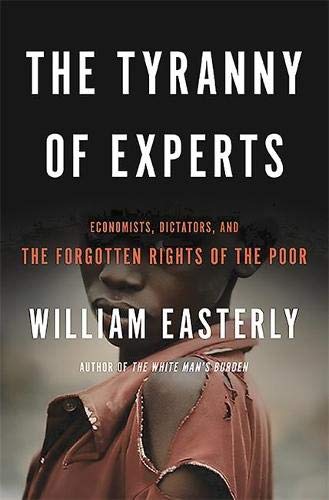
The Tyranny of Experts: Economists, Dictators, and the Forgotten Rights of the Poor, by William Easterly (2014) 418 pages ★★★★★ – Why economic development happens (or doesn’t)
In The Tyranny of Experts, the author of the seminal book The White Man’s Burden drills down into the history of economic development around the world in search of its causes. What he finds has little to do with any of the factors bandied about among contemporary development professionals.
“The conventional approach to economic development, to making poor countries rich,” William Easterly writes, “is based on a technocratic illusion: the belief that poverty is a purely technical problem amenable to such technical solutions as fertilizers, antibiotics, or nutritional supplements . . . The technocratic approach ignores what this book will establish as the real cause of poverty—the unchecked power of the state against poor people without rights.” Read more.
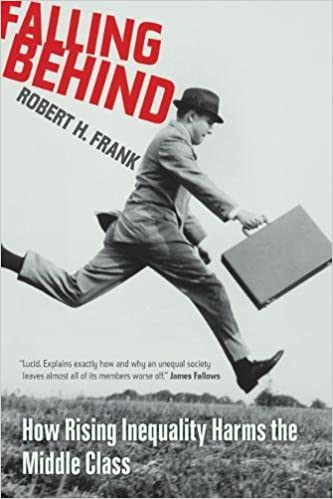
Falling Behind: How Rising Inequality Harms the Middle Class by Robert H. Frank (2007) 177 pages ★★★★☆ – Robert Frank examines income inequality
The subject of income inequality took center stage in the public mind only in 2010 with the advent of Occupy Wall Street, but the widening gap between the top 1% and the rest of us had been the subject of fierce debate in economic circles for many years previously. The Cornell economics professor Robert H. Frank made a notable—and eminently readable—contribution to the public discussion with his widely read 1995 book, co-authored with Philip J. Cook, The Winner-Take-All Society.
In Falling Behind, Frank goes far beyond the superficial coverage of income inequality in much of the media, which is largely limited to dramatizing just how far and fast the gap has grown between the haves and have-nots. That’s old hat now (though it wasn’t in 2007). Making use of homey thought experiments and references to behavioral psychology, Frank explains how income inequality forces people of lower or middle income to spend more than they can afford on housing, clothing, and sometimes even food—and how the policies that foster inequality worsen the “tragedy of the commons,” saddling society with inadequate public transportation, polluted air and water, crumbling infrastructure, and other frequently neglected problems. Read more.
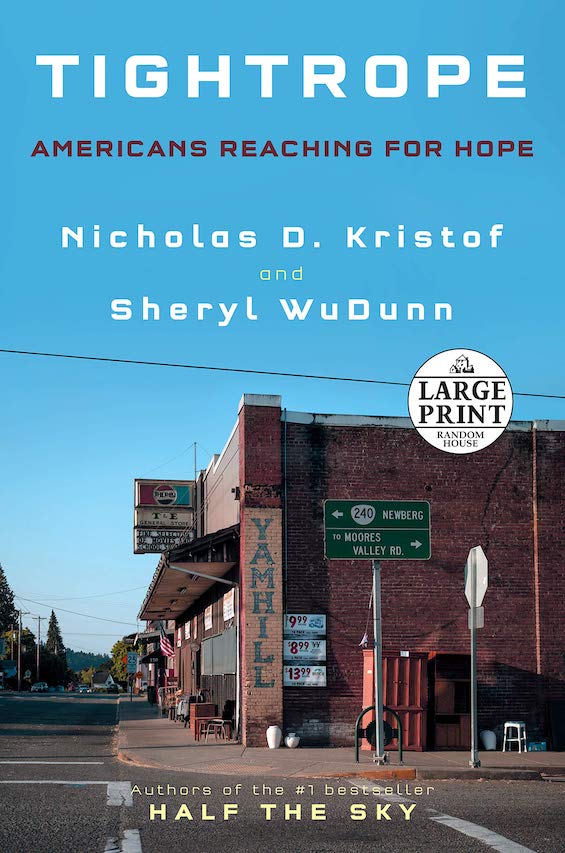
Tightrope: Americans Reaching for Hope by Nicholas D. Kristof and Sheryl WuDunn (2020) 322 pages ★★★★★ – A hopeful message about poverty in America by Nick Kristof and Sheryl WuDunn
If you wonder what’s gone wrong in America and why our society is so deeply divided, you’ll find a lot of the answers in Nick Kristof and Sheryl WuDunn‘s brilliant new book, Tightrope. You’ll also find a litany of possible solutions to the problems they expose. Tightrope could be the playbook for an activist Secretary of Health and Human Services in a progressive future administration. Like the couple’s earlier bestseller, Half the Sky, the book pairs deeply entrenched social problems with imaginative experiments undertaken by nonprofits and the private sector as well as government—and in the process delivers a hopeful message about poverty in America.
Tightrope is a profoundly personal book for Kristof and WuDunn. Many of the stories in their account of the impact of poverty and drugs on American society involve Kristof’s boyhood classmates, friends, and neighbors in the small farming community of Yamhill, Oregon. Read more.
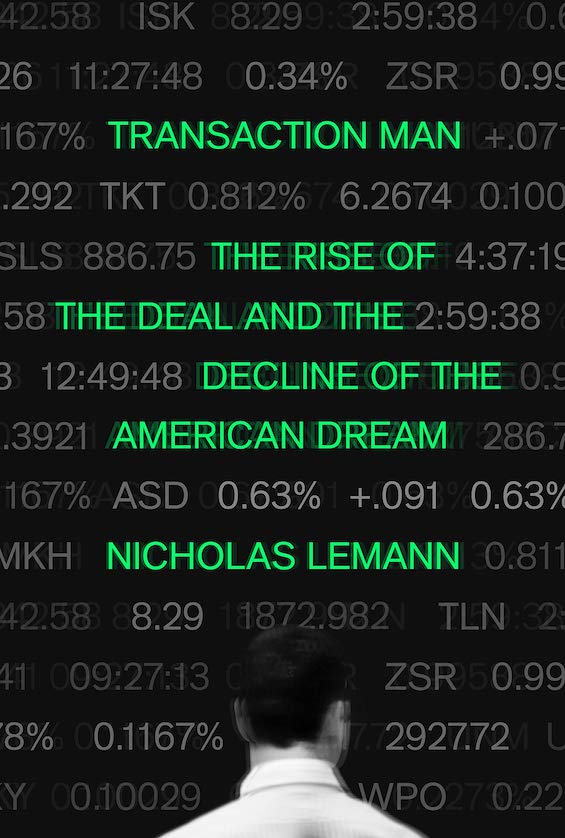
Transaction Man: The Rise of the Deal and the Decline of the American Dream by Nicholas Lemann (2019) 322 pages ★★★★★ – Economic inequality deconstructed in a brilliant historical study
The Industrial Revolution came late to the United States, but when it started in earnest following the Civil War its impact on American society was nothing short of revolutionary. Suddenly, an institution called the corporation assumed an ever-greater role in the life of the American people. Its influence was felt not just economically but politically and socially as well—influence so profound and (many thought) pernicious that even the notoriously corrupt Congress was moved to pass legislation to curb the excesses of the huge corporate structures called trusts. And the Sherman Anti-Trust Act, passed in 1890, was just the beginning.
As the Progressive Era unfolded a decade later with the entry of Theodore Roosevelt into the White House, the battle over the role of the corporation in American society rose to the top of the political agenda, and it remained there for decades to come. The debate swirling around that question early in the 20th century is the subject in the early chapters of Transaction Man by the eminent journalist Nicholas Lemann. The book is a brilliant inquiry into the big economic ideas that have dominated the American political process over the past century—and resulted in today’s extreme economic inequality. Read more.
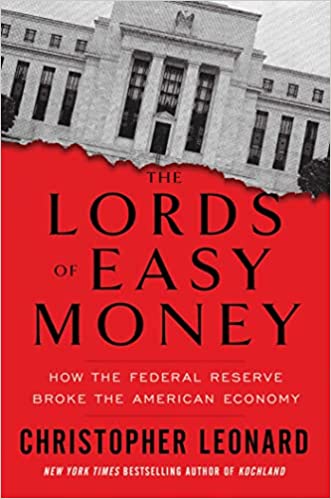
The Lords of Easy Money: How the Federal Reserve Broke the American Economy by Christopher Leonard (2022) 384 pages ★★★★☆—How did the US economy get to be in such a mess?
When I first became aware of the stock market in 1960, the Dow Jones Industrial Average stood at 679. By the beginning of 2022, the index had topped 36,000. Even discounting inflation, today’s Dow Jones average is five and a half times as high as it was just over 60 years ago. Of course, economic growth accounts for a substantial portion of that increase. But the government’s easy money policies over the past decade have been even more important. The years since the Great Recession of 2007-9 have seen nearly two-thirds of the increase. But, as Christopher Leonard takes pains to point out in The Lords of Easy Money, the central question to ask about this explosive rise is what lawyers are taught to ask: Who benefits? And, unless you have substantial holdings in the stock market or real estate, the answer to that question is, Not us.
Leonard sketches out the historical circumstances that led to the Great Recession. Focusing on the Federal Reserve, America’s central bank, he describes the draconian measures Fed Chairman Paul Volcker (1927-2019) used to break the back of inflation in the early 1980s. He then follows Volcker’s successor, Alan Greenspan (1926-), through the two decades of his chairmanship (1987-2006). Greenspan’s policies, as the man himself admitted, lay the groundwork for the Great Recession. But the focus in The Lords of Easy Money is squarely on developments within the Fed after the Great Recession. Among the central figures in the book are Greenspan’s three immediate successors: Ben Bernanke, Janet Yellen, and Jerome Powell. But the hero, if that word isn’t too much of a stretch, is a retired member of the policy-making Federal Open Market Committee (FOMC), Thomas Hoenig. Read more.
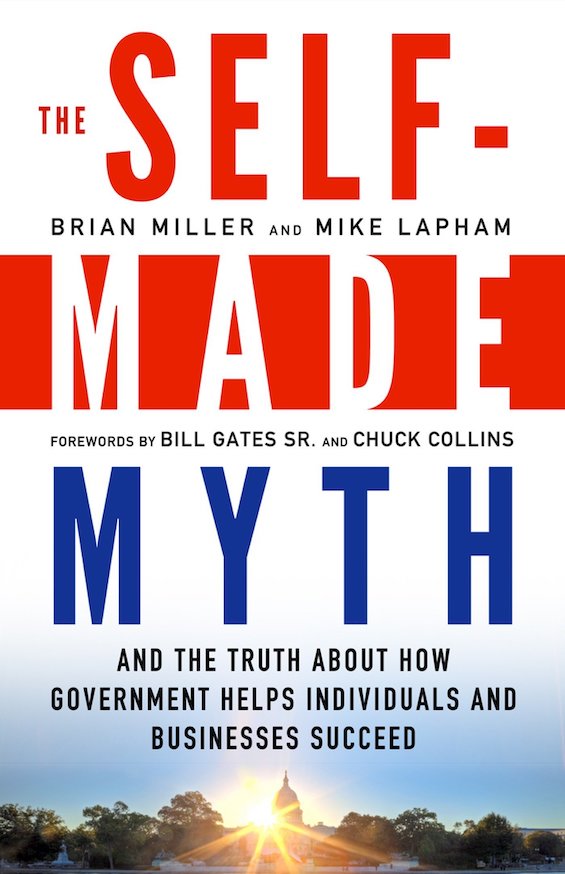
The Self-Made Myth, and the Truth About How Government Helps Individuals and Businesses Succeed by Brian Miller and Mike Lapham (2012) 218 pages ★★★★★ – A brilliant contribution to the ongoing political debate
For more than a century, the U.S. public has been in thrall to the dangerous fiction of the self-reliant hero propagated by more than a hundred Horatio Alger novels and decades of self-promotion by 20th Century corporate leaders and self-help gurus, with their most extreme expression in the works of Ayn Rand, notably Atlas Shrugged. Now, finally, we have in one slim, well-executed volume an answer to the claptrap that lies at the heart of the right-wing politics which has driven American democracy to the brink of extinction over the past four decades.
First, they argue, the self-made myth overlooks the accidents of geography and history. “Being born in this country is the ingredient that most reliably determines whether a person has the opportunity to become wealthy [and . . . o]f the 75 richest people in all human history, 14 were Americans born between 1831 and 1840, including John D. Rockefeller, Jay Gould, J. P. Morgan, Frederick Weyerhauser, and Andrew Carnegie.” Time and place matter.
Then the authors cite the circumstances of personal history that also are significant factors in determining one’s potential to become rich: race, gender, and (even more so) whether the parents are rich, not to mention such other factors as whether and where one goes to college. Read more.
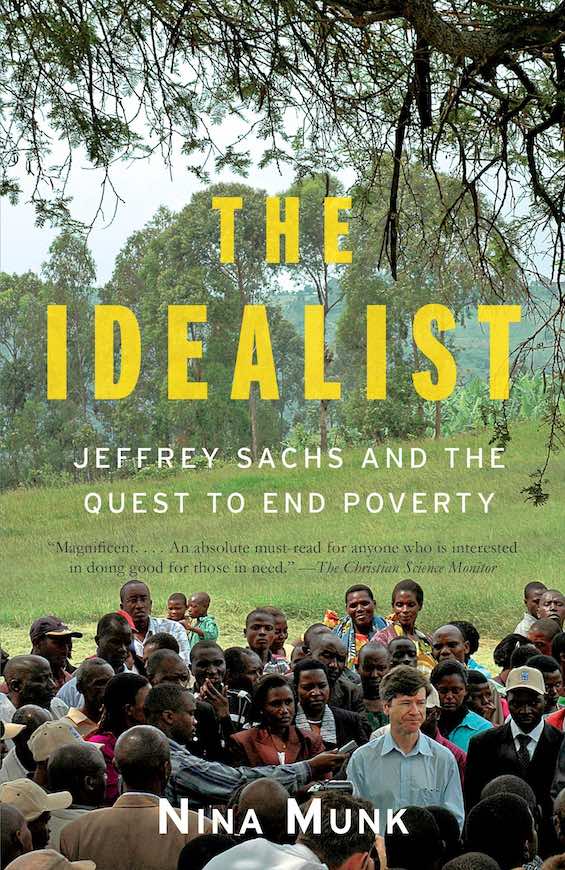
The Idealist: Jeffrey Sachs and the Quest to End Poverty, by Nina Munk (2013) 274 pages ★★★★★ – The quest to end poverty: Jeffrey Sachs unmasked
It’s difficult even to dip your toes into the field of poverty without tripping over the Millennium Villages Project. So extensive has been the coverage of this ambitious—some would say hubristic—endeavor that scholars may spend years sifting through the documented record. But anyone curious about the Millennium Villages need only read The Idealist, financial journalist Nina Munk’s eminently readable and extensively researched account of the Project and the extraordinarily gifted man who conceived and forced it on the world’s consciousness. Munk’s first-hand account should stand for years as the authoritative judgment on this ill-considered venture.
The Millennium Villages Project grew from a newfound concern with poverty in the mind of Jeffrey Sachs. Then a celebrated professor of economics at Columbia University and head of its Earth Institute, Sachs fastened on the idea of investing large sums of money in a dozen selected villages around sub-Saharan Africa to perform a sort of “shock therapy” that would lift the lucky residents out of poverty in five years and demonstrate to the world how anti-poverty work should be done. His goal was to achieve such undeniable success that the major foreign aid donors—the Americans, the Europeans, the Japanese—would then leap at the chance to pour hundreds of billions of dollars into replicating the Project throughout the African continent. Read more.
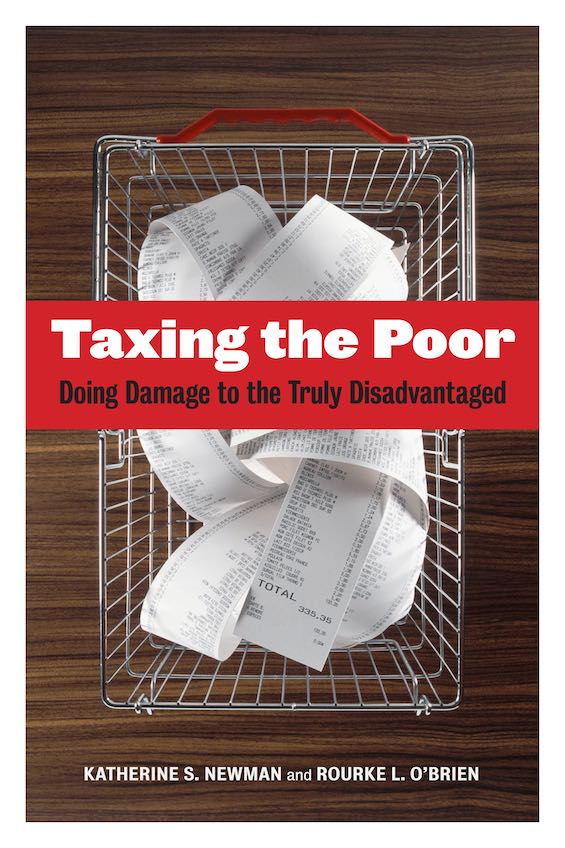
Taxing the Poor: Doing Damage to the Truly Disadvantaged by Katherine S. Newman and Rourke L. O’Brien (2011) 263 pages ★★★★☆ – Poverty in America: why the poor get poorer
Students of poverty in America have searched for its roots in many areas, including racism, culture, genetics, personal responsibility, and social policy. Taxes, by contrast, have received little attention. In Taxing the Poor, Katherine S. Newman and Rourke L. O’Brien respond to this oversight with an illuminating survey of how tax policy in the South has contributed in major ways to the poverty endemic in the region on both sides of the color line.
Compared to the rest of the country, the states of the old Confederacy depend to a great extent on sales taxes as a source of revenue. Similarly, the South imposes much lower corporate and progressive income taxes. The result is that the burden of funding the government falls disproportionately on those least able to pay. One of the major consequences of these policies is that the states of the region are significantly underfunded, especially in providing services for the poor. Another is that high sales taxes—especially on groceries and other necessities—drain a substantial portion of the poor’s meager income, putting them at a great disadvantage even when compared to the poor in other regions. Read more.
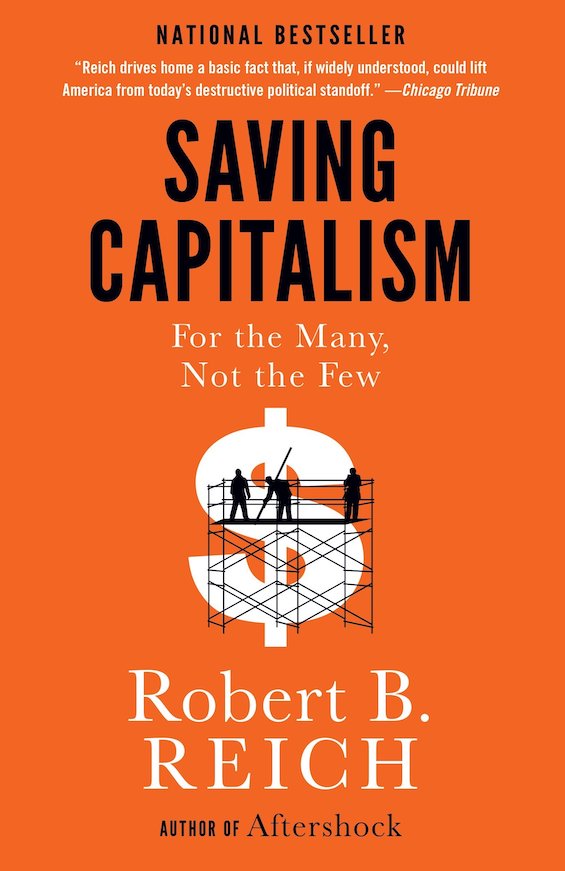
Saving Capitalism: For the Many, Not the Few by Robert B. Reich (2015) 306 pages ★★★★★ – Robert Reich explains how to make capitalism work for the middle class
If you’ve ever been exposed to Robert Reich‘s “Wealth and Poverty” course at UC Berkeley, perhaps through the film Inequality for All, or heard him speak in public, you know that there are few people alive today who are his equal in the ability to explain complex economic and social issues so cogently and compellingly. And few indeed are as funny as he is, either: the man could make a go of a career with a standup act.
However, there’s not a lot of humor in Saving Capitalism, Reich’s fifteenth book. In this brilliant long essay, the former U.S. Secretary of Labor takes on the economic issues of the day from a perspective that rarely comes to light in public discourse: he rejects the widespread assumption that a “free market” exists independent of government. Yet the book centers around his concern of how to make capitalism work. Read more.
For related reading
Although I haven’t reviewed the book (since I read it years ago), I can’t pass over the subject of economic inequality without touting it. It’s a classic in the field of development economics and presents a lucid and powerfully argued perspective on development. The book is The White Man’s Burden: Why the West’s Efforts to Aid the Rest Have Done So Much Ill and So Little Good, by William Easterly (2006) 443 pages.
For another, flawed take on economic inequality, see Davos Man: How the Billionaires Devoured the World by Peter S. Goodman (The men behind the world’s widening economic inequality).
You might also enjoy:
- Top 10 nonfiction books about politics
- Narrowing global inequities: a reading list
- The top 10 books on the economics of poverty
- 13 enlightening books about poverty in America
And you can always find my most popular reviews, and the most recent ones, on the Home Page.

